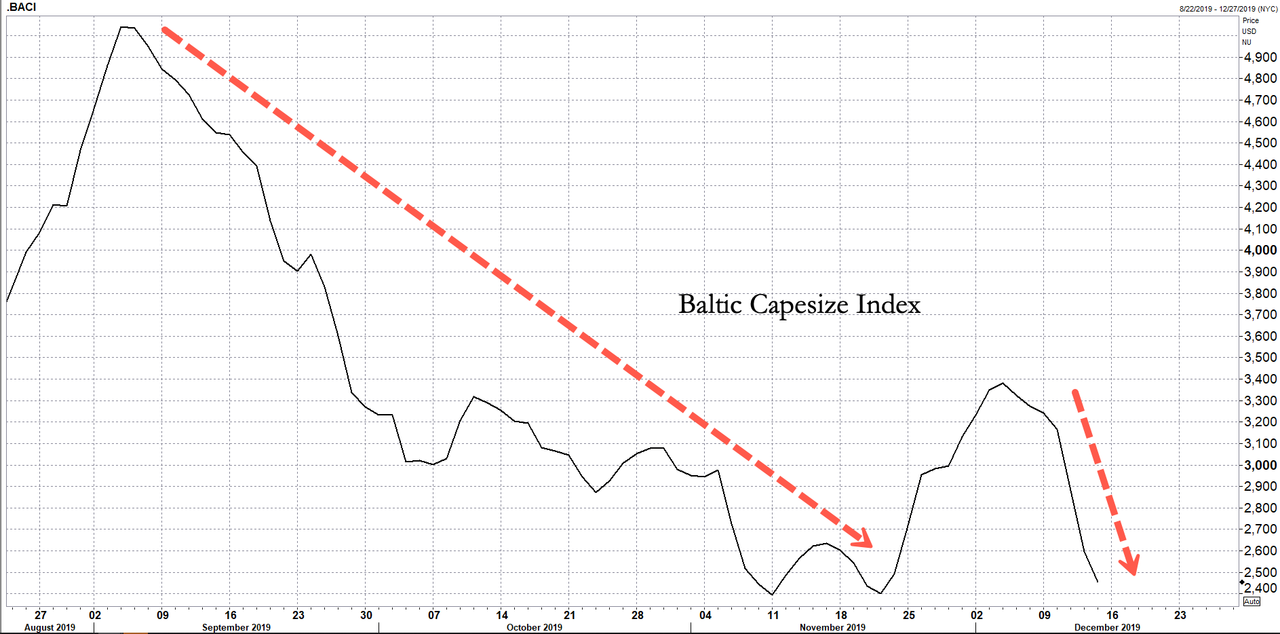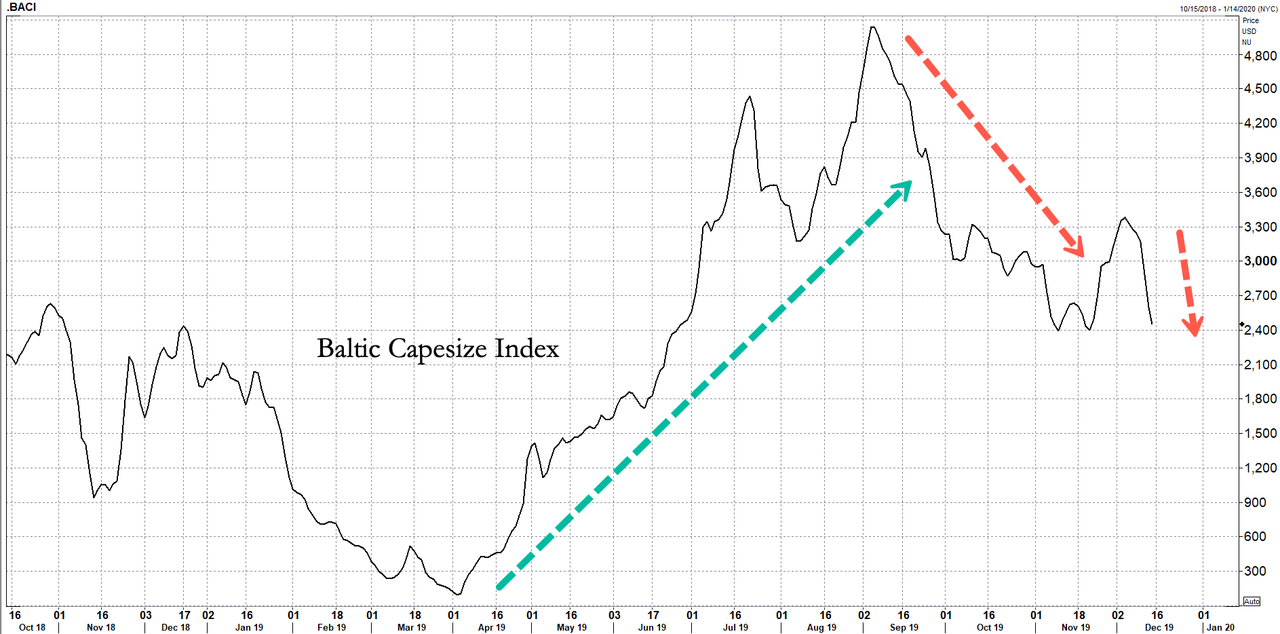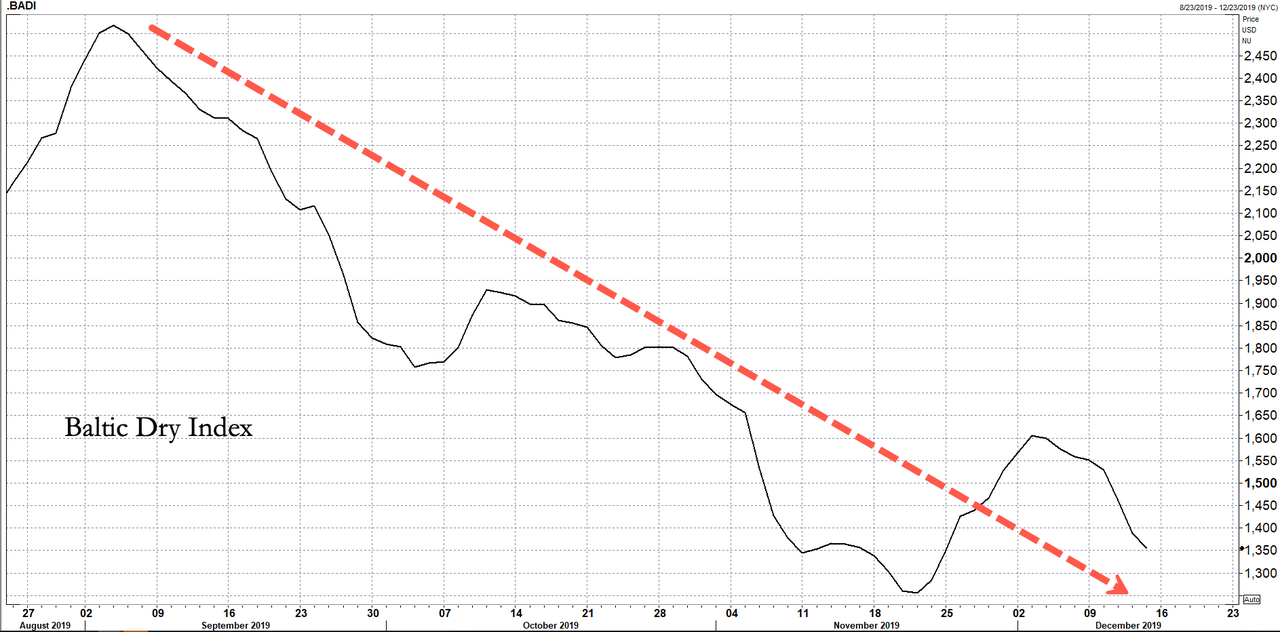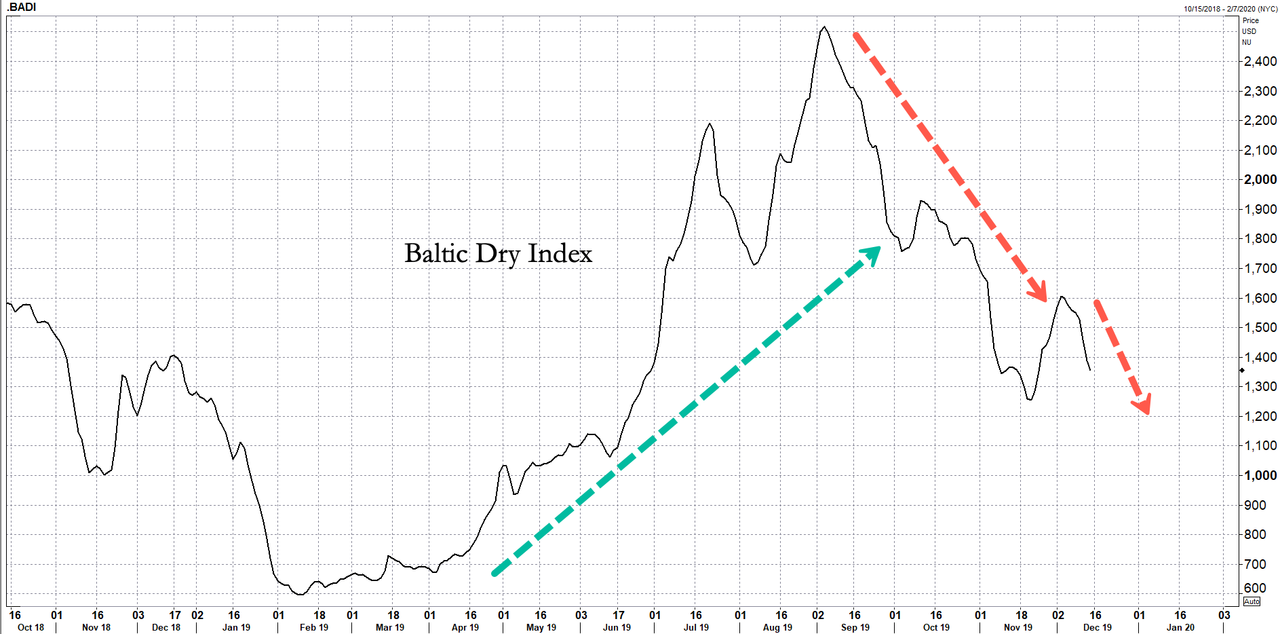Capesize Shipping Rates Plunge To Six Month Low, Weighs Down Baltic Index
Another downward slide in dry bulk shipping known as Capesize — vessels with a capacity of more than 100,000 deadweight tons, has been seen on Monday morning with rates hitting six-month lows. The slide in Capesize rates has weighed on the overall Baltic Exchange index.
The Capesize index slid 4.9%, to 2,334, its lowest since June 21.
The Baltic index, which tracks rates for Capesize, Panamax and Supramax vessels that transport dry bulk commodities, dropped 3% on Monday.
The largest US-listed Capesize companies, Golden Ocean and Star Bulk, recently outlined demand issues for Capesize vessels in separate earnings calls in late November.
The plunge in Capesize rates is mainly a demand issue, both shippers warned, originating from Brazil, Australia, and China.
“The main drivers of Capesize rates are Chinese iron-ore imports from Australia and Brazil. Since the route from Brazil is triple the distance versus the trip from Australia, it soaks up three times as many Capes to carry the same volume,” said FreightWaves.
According to Birgitte Ringstad Vartdal, CEO of Golden Ocean, “at the start of the fourth quarter, it looks like [Brazilian iron-ore miner] Vale is struggling a bit with its production system and there has also been a lot of early rain in Brazil. Vale has reduced its guidance for the fourth quarter and has guided a moderate production level in the first quarter.”
“In the spot market, we see ships on the Australia-China route being fixed constantly, every day, but we see a lack of volume on the Brazil-China route,” she added, noting that this “should reduce the number of vessels that are willing to ballast toward Brazil.”
Persistent weakness in Capesize rates on specific shipping lanes to and from Brazil, Australia, and China, indicates that the global economy is still losing momentum and a giant rebound in which equity markets have already priced in might be fantasy. We don’t discount that the worldwide economy could stabilize in early 2020, but the idea of a massive rebound in economic growth is unlikely at the moment.
Tyler Durden
Mon, 12/16/2019 – 20:50
via ZeroHedge News https://ift.tt/35pcgk6 Tyler Durden



